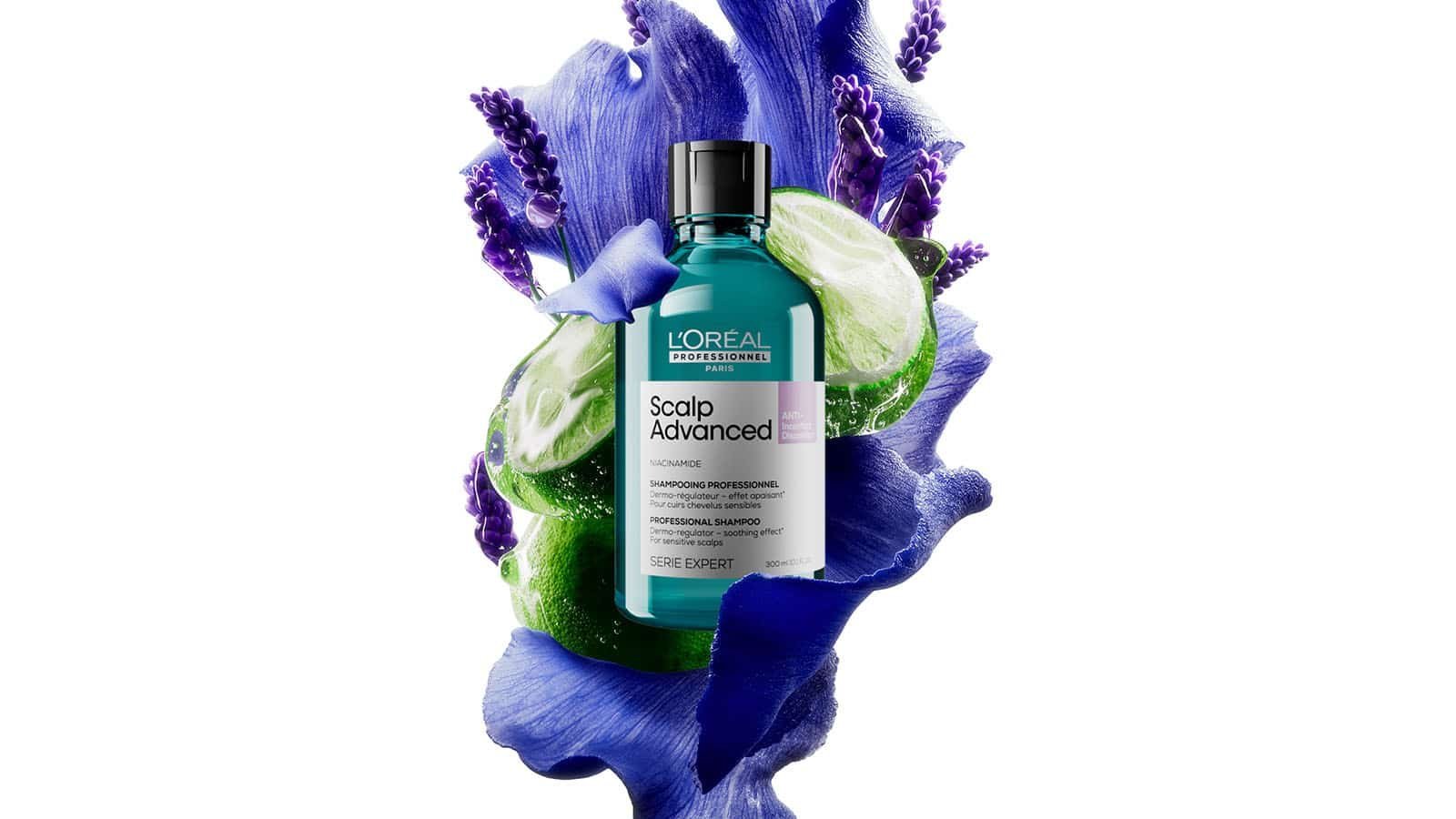A flaky scalp can not only be inconvenient and embarrassing, but it can also be accompanied by discomfort such as tightness, itching and stinging. Find out what causes a dry flaky scalp and how you can help reduce the symptoms and even prevent the condition from coming back.
Dry scalp vs. dandruff: what's the difference?
When it comes to dandruff vs. dry scalp, there are some key differences that will help you in your dandruff/dry flakey scalp treatment. Read on to find out what causes these two flakey scalp concerns.
A dry scalp is literally when the skin on your head is dry, and does not produce (or retain) enough natural oils to keep it moisturised, whereas dandruff (described medically as pityriasis capitis or pityriasis sicca) is usually linked to an imbalance in scalp conditions, leading to an overactive production of skin cells. They can be difficult to differentiate because both result in visible flakes on the scalp, but a dry scalp and dandruff require separate treatments.
Dry scalp vs. dandruff: similar symptoms, different causes
Dandruff is not necessarily due to your skin type, and usually looks different to the small white flakes that are caused by a naturally dry flakey scalp. While dry skin accompanies dry-looking hair, dandruff isn't related to your skin type – so you can have either greasy hair or dry hair with a flakey scalp. This is an important distinction, because dandruff is not treated in the same way as a dry flakey scalp.

What is dry scalp?
Skin types are usually divided into oily, sensitive, combination, normal and dry. The latter, dry skin, is caused by the skin's incapacity to produce enough sebum and natural oils to keep itself moisturised. As a result, the top layer of the skin dries out, cracks and sheds as fine flakes, which could be the reason why you notice small white flakes of skin on your scalp and in the hair. This condition can be diagnosed through a dry itchy flakey scalp, while dandruff does not often cause irritation.
Causes of a dry scalp
A naturally dry skin type can be behind a dry scalp, as well as some hormonal conditions and can be the side effect of certain medications (eg. oral acne treatments). A dry scalp can feel (like a dry complexion) tight and uncomfortable, and often results in frizzy and dull-looking hair, as the scalp isn't producing enough oil to lubricate it. This is where it differs from dandruff-related conditions, where the hair can appear oily yet flakey at the same time.
How to treat dry flakey scalp causes:
Restoring the natural moisture levels of your scalp isn't like moisturising your skin. You can't simply apply an emollient over the head, as this will leave the hair greasy and limp. The solution is in haircare designed specifically for sensitive scalps, like the Scalp Advanced Anti-Discomfort Dermo-Regulator Shampoo, followed by the Intense Soother Treatment. Apply shampoo and obtain a rich lather, then rinse and follow with the treatment for optimum results.
What is dandruff?
Humans and animals both shed (skin, hair, fur, feathers) in a natural process known as "dander", which is possibly where dandruff gets its name. While everybody naturally sheds skin, usually these tiny cells remain invisible and are whisked off into the air to become dust. Dandruff, however, is when these dead skin cells build up on the surface of the skin and cluster in large, visible white flakes. They then break off from the skin and settle along the hair fiber and on your shoulders.
Causes of dandruff
Dandruff is not simply dry skin build-up, but is linked to many factors, including the presence of a naturally occurring fungus on the scalp surface. A scalp suffering from a skin condition is typically extra sensitive to haircare products, and can often feel tight and itchy, and in more severe cases can show patches of redness.
All skin naturally sheds continuously as part of the regeneration process, but for someone suffering from dandruff, these cells can cluster and produce those tell-tale white flakes of dandruff, regardless of how often you wash your hair.
How to manage dandruff:
To remove flakes of dandruff without irritating the skin, use a gentle clarifying product like the Scalp Advanced Anti-Dandruff Dermo-Clarifier Shampoo for flakey scalp concerns. Regular use will help balance the skin's moisture levels and help prevent visible flakes from forming.
Other causes for an itchy flakey scalp
How to treat an itchy scalp: If your itchy flakey scalp is due to sensitivity, it is important to soothe the scalp while also removing the excess flakes by using the best shampoo for flakey scalp conditions. Try Scalp Advanced Anti-Discomfort Dermo-regulator Shampoo, and our Intense Soother Treatment, both specifically formulated for sensitive skin prone to dandruff.
